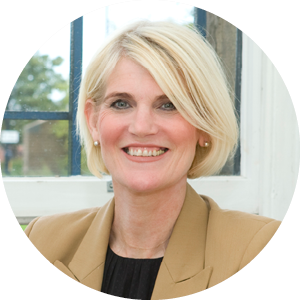
Two key leaders of Lexonik explain what impelled them to initiate this teaching programme that can dramatically improve literacy, vocabulary, and comprehension
Addressing the audience of teachers and school leaders at SSAT’s National Conference last December, Lexonik’s chief executive Claire Preston recalled a very personal experience that contributed to her firm’s “unwavering belief that no student should be locked out of the curriculum because of preventable illiteracy. And let’s be clear, that’s what illiteracy means, being locked out. When a student can’t make sense of what’s in front of them, they’re locked out of the curriculum in whatever subject that might be. It’s a matter of social justice.”
She explained that Lexonik’s campaign to eradicate preventable illiteracy “means not just decoding words, but genuinely understanding.” To give you a personal anecdote and example, my 11-year-old daughter had independently completed some geography homework. The task was about a passage in a comprehension exercise on Argentina. She did really well with the homework and was proud to show me the marks that she’d got. And when I quizzed her on it, sure enough, she answered the questions confidently.
“However, once I got my Lexonik hat on (which annoys her immensely), and started to delve a little deeper to ask her what things actually meant, it became very clear that she had no understanding of the words that she’d been using to carry out that task.
“Now, this is not an isolated incident, and I’m sure we can all relate to it as parents and teachers. But that understanding is absolutely key – and that’s why literacy is so often misunderstood.”
‘Break it into syllables’
Lexonik’s founder, Katy Parkinson, then described how at an earlier stage in her career she was a teacher in SEN, especially dyslexia: “Ben was a 14-year-old reading as an eight-year-old, acutely aware that he was underachieving. He got very annoyed because he got stuck on a word. So, I reassured him again, ’Don’t worry Ben. Read around the sentence, break it down into syllables, just the way I’ve been showing you.’ He still couldn’t do it, so I told him the word was ‘patient’. And I can see him now, standing up, practically overturning the table, pointing down at me and saying, ’You tell me to break that word down into syllables, and then you tell me that it says, patient. If you don’t know the code, patient should be read as pa-ti-ent. Why patient?’
“That was the seed of the understanding that my teaching of syllabification was nowhere near good enough.
“And then, vocabulary. I honestly thought when I was in mainstream, I was teaching vocabulary. But sometimes we teach, yet it’s not being learned. Have you [teachers in the audience] got students in your classrooms not able to understand the vocabulary that really, really, they need to access the curriculum? I’m suggesting there are many children sitting there, a bit like Claire’s daughter, who didn’t really understand the words in a particular text even if they seemed to. I think that’s a non-negotiable: we need to be able to make sure not only that we are getting students to decode the academic language, but to truly understand it. Because anything about inference and all the other high-level reading won’t work unless those two things are in place.”
Claire Preston concluded that schools can use Lexonik’s approach “to ensure that by the end of key stage 3, no student cannot access the curriculum due to preventable illiteracy.” She wanted to achieve “a reality where all young people can access the curriculum because they can read.”

Claire Preston
Chief Executive, Lexonik
If you need support with literacy levels, vocabulary and comprehension in your school, contact Lexonik, SSAT’s Leading Literacy Partner, who offer a 10% discount on the price per pupil to SSAT members.

